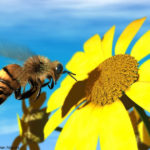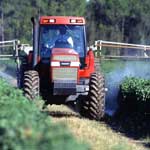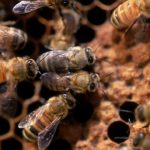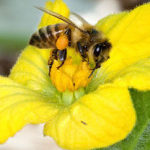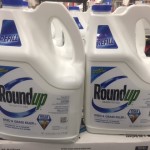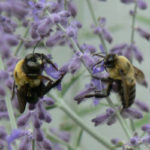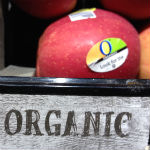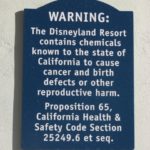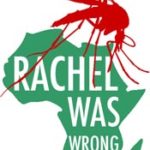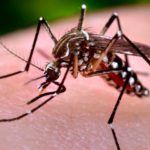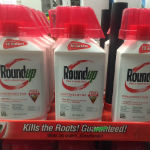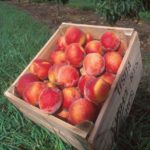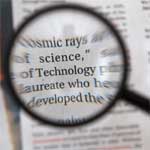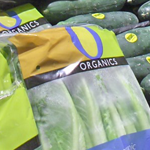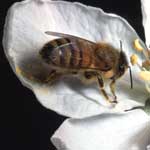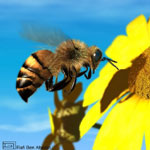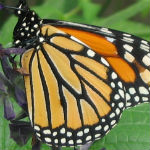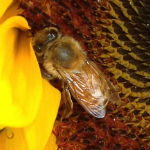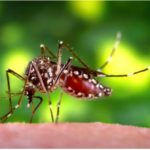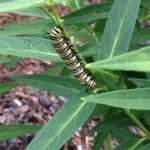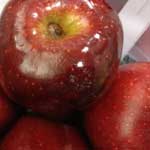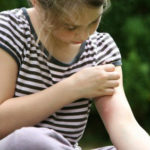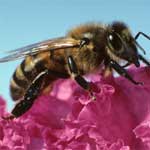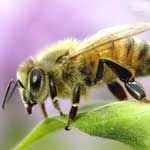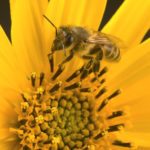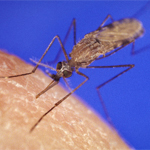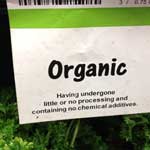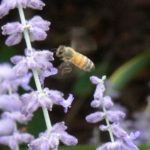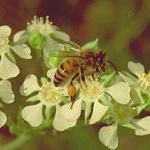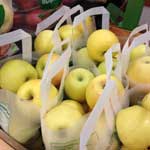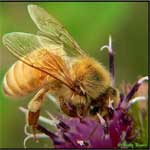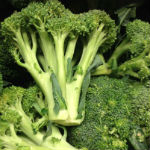"Federal Children's Environmental Health Grants Used to Peddle Junk Science," By Angela Logomasini, Ph.D For more than two decades, the federal government has doled out millions of dollars to fund university-based “children’s environmental health centers.” These centers operate under the guise of objectivity, but they are far from objective. They are instead part of a web of left-leaning environmental activist organizations that have long misused taxpayer funds to peddle junk science, leading … [Read more...]
Emotions, Not Facts, are Guiding Juries against Roundup
"Emotions, Not Facts, are Guiding Juries against Roundup," By Angela Logomasini Ph.D. A California jury this week awarded a whopping $2 billion based on a couple's claim that glyphosate, the active ingredient in Monsanto’s weed killer known as Roundup, caused their cancers. Yet just last month, the Environmental Protection Agency reaffirmed its long-held finding that the chemical does not cause cancer. The lesson here is not that the Environmental Agency was wrong, but that sometimes the … [Read more...]
Earth Day Ideology
"Ideology Undermines Earth Day Goal," By Angela Logomasini, Ph.D. April 22 is the 49th anniversary of Earth Day as well as the former communist dictator Vladimir Ilyich Lenin’s 149th birthday. Is it a coincidence that these two events occur on the same day? Maybe. But there’s no doubt that each share a blind adherence to ideological biases against the free market — biases so devoted to big-government policies that disregard their failings. For example, the activist … [Read more...]
Ruling on Roundup is Good News
"Judge Tentative Ruling on Roundup is Good News for Farmers, Consumers," By Angela Logomasini, Ph.D. It’s good news for consumers that a superior court judge may put the brakes on a case alleging that the popular weed killer Roundup causes cancer. The science behind this claim — and nearly 9,000 other similar cases pending against Roundup’s manufacturer, Monsanto — is sorely lacking. If this case and others succeed, Roundup will likely be removed from the marketplace based on junk science … [Read more...]
Is Your Weed Killer Killing You?
"Is Your Weed Killer Killing You?" By Angela Logomasini, Ph.D. You might think that the popular weed killer known as Roundup is causing cancers around the world thanks to alarming news coverage of pending lawsuits. The first of thousands of such cases has now gone to trial in San Francisco, with the plaintiff claiming that Roundup caused his non-Hodgkins lymphoma. But don’t panic. While the illnesses in these cases are tragic, it is highly unlikely that they have anything to do with … [Read more...]
Political Concerns Trumping Honeybee Science
"European Food Safety Assessment Proves Nothing about Risks to Bees," By Angela Logomasini, Ph.D. As European Union (EU) risk assessments purportedly “confirm” that systemic pesticides threaten honeybees and lawmakers quickly clamor for pesticide bans, the stark reality is that so far in this process, political concerns have been trumping science. In fact, politics has prevented scientists from considering the bigger picture, and, as a result, both bees and the world’s food supply will … [Read more...]
Fearing Chemicals in your Thanksgiving Feast? Don’t.
"Neurotoxins in Your Thanksgiving Meal," By Angela Logomasini, Ph.D. Should you “go organic” for Thanksgiving, buying only “chemical free” foods? That’s the suggestion of some “health advocates” who say it’s in your best interest to avoid “dangerous” synthetic chemicals, particularly pesticides. Yet not only is it impossible to avoid chemicals, it’s simply not necessary for public health purposes. All physical things are made of chemicals, so yes, there are chemicals in your … [Read more...]
Study: Glyphosate Does Not Cause Cancer
"Long-term Study Finds That the Pesticide Glyphosate Does Not Cause Cancer," By Katarina Zimmer. A new study has found no conclusive link between exposure to glyphosate—the main ingredient in a popular weedkiller—and cancer. The new study, which was seen by Reuters, draws on long-term data collected through the Agricultural Health Study. This has monitored the health of nearly 90,000 people in Iowa and North Carolina from 1993 to 2010, including farmers licensed to apply pesticides to … [Read more...]
Chemical Warfare for Bugs Only
"Is Using Pesticides an Act of Chemical Warfare?" By Angela Logomasini, Ph.D. A substance that “belongs to a class of chemicals developed as a nerve gas made by Nazi Germany is now found in food, air and drinking water,” thanks to President Donald Trump according to an article found online. This “neurotoxin” is in “same chemical family as sarin nerve gas,” which has been used as a chemical weapon in Syria, notes another writer. You might think such outlandish claims come from some looney … [Read more...]
JAMA Study on Pesticides and Fertility
"Are Pesticides The New Birth Control?," By Lila Abassi. When studies are published in major journals one assumes that study adds value to scientific knowledge - sadly this is not always the case. One such study, recently published in JAMA Internal Medicine, revealed an association between high pesticide exposure and decreased pregnancies and live births in women participating in fertility treatments. The data included 325 women, from 2006 onward, undergoing fertility treatments at … [Read more...]
Anti-Pesticide Fearmongering Makes Food More Expensive
"Bugged By Junk Science," By Angela Logomasini, Ph.D. “Don’t let the bed bugs bite” was once nothing more than a lighthearted expression, yet nowadays it’s a real concern. Banning the most effective controls will do that. The same can be said for fruit and vegetable pests. It seems such pests are having a field day thanks in part to misguided pesticide regulation driven by junk science and anti-chemical fearmongering. And that is not just a problem for farmers trying to make ends meet. You … [Read more...]
NYT Foolish “Reporting” on Chlorpyrifos
"NYT Pesticide Exposé Only Exposes Foolish Reporting," By Angela Logomasini, Ph.D. Earlier this year, the Environmental Protection Agency rejected a petition from two environmental activist groups to ban the longtime, widely-used pesticide chlorpyrifos. Last week, the New York Times published an ostensible exposé on that decision by reporter Eric Lipton, but despite a lot of dark hints, the story exposes nothing new or noteworthy about the Trump Administration’s decision. Read … [Read more...]
Activists Continue to ‘Bee’ Wrong about Honeybees
"Environmental Activists Continue to 'Bee' Wrong about Honeybee Health Challenges," Angela Logomasini. Bloomberg reports some good news this week: Honeybee hive health has improved and so-called colony collapse disorder (CCD) is less of a problem than it was before. Yet CCD has never really been the major challenge to bees. Environmental activists have used it as an excuse to advance pesticide regulations, spreading misinformation about its causes and impact. May Berenbaum, an entomologist at … [Read more...]
Standing up for Chlorpyrifos Science
"EPA Should Stand Firm on Chlorpyrifos Decision," By Angela Logomasini, Ph.D. EPA Administrator Scott Pruitt took the right stand in favor of sound science last March when he denied an activist petition to ban the pesticide chlorpyrifos. At the time, he explained: "By reversing the previous Administration’s steps to ban one of the most widely used pesticides in the world, we are returning to using sound science in decision-making—rather than predetermined results." But this battle isn’t over; … [Read more...]
Another Misleading Honeybee Study
"Bees and Neonicotinoids - Another Study Promoting a Media Meme," By Chuck Dinerstein. Researchers from the Centre for Ecology & Hydrology (CEH) have published results of a large-scale field experiment, paid for by neonicotinoid (also shortened as "neonics") manufacturers Syngenta and Bayer, to assess neonicotinoid impacts on honeybees and wild bees across Europe. There were 258 data points, nine of which were negative, seven were positive and four were inconclusive. So 238 of 258 showed … [Read more...]
Roundup and Phony Cancer Claims
"No, California, Roundup Won't Give You Cancer," By Julie Kelly and Henry I. Miller. The chemophobes who run California are at it again, siding with environmental activists and pseudoscience rather than evidence and common sense. The state Office of Environmental Health Hazard Assessment announced last month that it was adding the weed-killer glyphosate to its list of chemicals that purportedly cause cancer. Glyphosate — sold as Roundup and under other brand names — is one of the world’s most … [Read more...]
Claims about Wild Bee’s Going Extinct are Off-Base
"Bee Experts Challenge Environmental Claim That Wild Bees Are Near Extinction," By Hank Campbell. Colony Collapse Disorder, the belief that honeybees, an important pollinator, are being killed off in droves, has been good for environmental fundraising but hasn't had a scientific foundation. Nonetheless, it has persisted for 10 years despite data showing that periodic die-offs in bees are as common, and therefore predictable, as solar cycles and California droughts. From the time that records of … [Read more...]
Dirty Marketing of Organic Food
"Conventional Produce Is Not Dirty, But The Marketing Tactics Of Big Organic Are," By Steven Savage. For each of the last twenty years, an organization called the Environmental Working Group has issued what it calls a “Dirty Dozen List.” It names crops it claims to have high pesticide residues and recommends that consumers purchase organic versions of these crops. They base their list on a seriously distorted interpretation of a taxpayer-funded testing program called the PDP (Pesticide Data … [Read more...]
Scrap Proposition 65
"Scrap Proposition 65, California's Unscientific Chemical Safety Law," By Angela Logomasini. California may soon list glyphosate, the active ingredient used to make Roundup weed killer, as a carcinogen under the state’s so-called “right-to-know” law, originally passed by voters in 1986 as Proposition 65. Its maker, Monsanto, says it will appeal a recent court ruling that would allow the state to proceed, but they may not be able to stop it, even though the state’s claim isn’t supported by much … [Read more...]
Bee Listing Could Harm Bees, Butterflies, other Pollinators
"Endangered Species Bee Listing Could Harm Bees, Butterflies, other Pollinators," By Angela Logomasini. If you care about the survival of bees and other pollinators in the United States, you should be concerned about yesterday’s U.S. Fish and Wildlife Service announcement that has placed the rusty patched bumble bee on the U.S. Endangered Species Act (ESA) list. Although it may seem counter-intuitive, the ESA listing could harm this bee and other pollinators by creating perverse incentives that … [Read more...]
Politics of a Last Minute ESA Listing
"Last-Ditch Regulatory Mischief," By Paul Driessen. As time ticks down on the Obama administration, its appointees and minions in federal agencies across America are scrambling to deliver last-minute favors to their favorite constituencies — especially environmentalists. ...A perfect example involves the Interior Department's Fish and Wildlife Service (FWS), which among other things plays a central role in administering the Endangered Species Act. ... in recent years the act has been invoked to … [Read more...]
Really Fake News: Chemical Scares
"The 'Fake News' Problem: Health and Safety Edition," By Angela Logomasini, Ph.D. The moniker “fake news” may have entered the mainstream lexicon in 2016, but phony and misleading news stories have always been a problem—and it’s a phenomenon that doubtless will continue so long as the news media continues disguising political opinion as objective fact. Consider the myriad alarmist news stories this past year hyping risks about chemicals. Read more. Save Save Save … [Read more...]
Rachel Carson’s Destructive Acts
"Rachel Carson's 'Heedless And Destructive Acts,'" By Henry I. Miller. Environmental activists gathered last month in Washington DC to celebrate the legacy of the late author Rachel Carson, who gained fame for her book, 'Silent Spring.' ... They’d have done better to pick up trash at a local park. The book is still revered by many (especially by those who haven’t actually read it), but its legacy is anything but positive. ... As detailed by Roger Meiners and Andy Morriss in their scholarly yet … [Read more...]
Pesticide Safety
"How Can Pesticides Be Safe?," By Steve Savage. Many people may find it difficult to imagine how a pesticide could ever be safe. To understand how that is possible, it is helpful to make the comparison with something more familiar: electricity. It is hard to envision modern life without electricity. As much as we enjoy and need this source of energy, it involves some hazards. Electricity can, and sometimes does, cause injury or death. Yet overall, we think of using electricity as a reasonably … [Read more...]
Carson’s Dangerous Anti-Chemical Legacy
"Activists Celebrate Carson’s Dangerous Anti-Chemical Legacy," By Angela Logomasini. Environmental activists are gathering today to celebrate the legacy of the late author and biologist Rachel Carson at an event hosted by the Environmental Energy and Study Institute. Yet this legacy is nothing to celebrate. Carson’s writings included many inflammatory and misleading claims about chemicals, claims that have long been rebuked by scientists. Yet her rhetoric spawned a radical environmental … [Read more...]
Fight Zika with Regulatory Reform
"Trump Could Fight Zika with Regulatory Reform" By Angela Logomasini, Ph.D. President-elect Donald Trump has promised that he will focus on reversing an expanding federal regulatory burden. As part of that agenda, he should address regulatory hurdles that undermine efforts to control dangerous mosquito-transmitted diseases, such as the Zika virus. Quick action on Zika is essential as it spreads in Florida with potential serious health effects. Zika can cause microcephaly, a serious and … [Read more...]
Glyphosate Politics
"While Unlikely To Be Carcinogenic, The Herbicide Glyphosate Is A Symptom Of A Deep Social Pathology," By Geoffrey Kabat. On both sides of the Atlantic a battle is raging between starkly opposed views of what science tells us about risks to our health emanating from our surroundings, including our food, water, and the wider environment. This battle often pits advocates, nongovernmental organizations (NGOs), politicians, and partisan scientists, who have little ability or inclination to evaluate … [Read more...]
No Need to Fear Pesticide Residue
"Do You Really Need To Worry About Pesticide Residues On Your Food?" By Steve Savage. Many Americans have concerns about pesticide residues on food – particularly for fruits and vegetables. In contrast with that oft-communicated perception, the safety of our food supply is well documented. One reason for this disconnect is that there are activist groups (non-governmental organizations) that consistently promote the idea that consumers should buy organic versions of certain crops in order to … [Read more...]
EPA Delay on Glyphosate
Why Did the EPA Delay Its Glyphosate Safety Report? By Julie Kelly. The Environmental Protection Agency is punting a final decision on the safety of the controversial weedkiller glyphosate to the next administration. Since 2009, the agency has been conducting a registration review of glyphosate, one of the world most widely-used herbicides, and evaluating any risk to human and environmental health, an assessment required every 15 years. Read more. Save Save … [Read more...]
‘Advocacy Research’ Discredits Science
"'Advocacy Research' Discredits Science And Aids Unprincipled Activism," By Henry I. Miller and Robert Wager. The scientific research enterprise today is in something of a quandary. Various empirical studies show that 80-90% of the claims coming from scientific articles in peer-reviewed journals fail to replicate. (To simplify that statistic, that’s equivalent to only a 10-20% success rate for recipes from a cookbook.) For the most part this is due to flaws in the design of experiments, … [Read more...]
Glyphosate Fabrications Unraveling?
"Glyphosate: A Slow But Steady Vindication," By Alex Berezow. There has been a long history of ridiculous fearmongering by environmental activists masquerading as health experts. BPA, MSG, Alar, DDT, and food coloring are just a handful of chemicals that fell prey to overblown fears or outright fabrications. Today, the whipping boy that takes the brunt of the unfounded chemophobic assault on science is the herbicide glyphosate. Glyphosate is demonized primarily for one reason: Monsanto. To many … [Read more...]
IARC’s Questionable “Science”
"Of Questionable Evidentiary Weight' — Another Nail In IARC's Glyphosate Coffin" By Hank Campbell. It seems like a hundred years ago that the International Agency for Research on Cancer (IARC) was considered a neutral force for public good - but it was only 51. In 1965, when the Agency was created by the United Nations, there was a lot of optimism about science and the future and IARC was created to instill confidence in the public about the difference between real harm and scaremongering. Read … [Read more...]
Majority of Pesticides in California are “Approved Organic”
"More than Half of Pesticides used by California Farmers are Active Ingredients Approved for Organic," By Steve Savage. Did you know that organic farmers use pesticides? They do. Would it surprise you to know that many of the same pesticides are used by both conventional and organic farmers? In fact just over half of all the pesticides used in California by all categories of farmers are active ingredients that are approved for organic. Would it surprise you to know that very little of modern … [Read more...]
Zika Prevention Kit
"The Best Possible Zika Prevention Kit Includes DEET," By Angela Logomasini, Ph.D. Last week, Broward Country Florida recorded the first two Zika cases transmitted by mosquitos in the United States. The Centers for Disease Control and Prevention (CDC) is urging pregnant women to assemble and deploy a “Zika Prevention Kit,” which is a good idea. CDC’s suggested kit includes: bed nets; insect repellent; mosquito dunks, which are added to standing water to prevent development of mosquito larvae; … [Read more...]
No Need to Worry about the Bees
"The Buzz: Six Reasons Not To Worry About The Bees," by Henry I. Miller. Bees are in the news, but for all the wrong reasons—mainly, dire tales of disappearing bees threatening a third of our food supply. Time Magazine, opting for sensationalism over accuracy, said we were headed toward “A world without bees,” with an online video explaining, “Why bees are going extinct.” They called it the “beepocalypse” and blamed it all on modern agricultural technologies, urging immediate and aggressive … [Read more...]
Beekeeping Fad
"Beekeeping Fad And The Stress Of Traveling Is Harmful To Bees," By Hank Campbell. Are bees in peril or not? It's difficult to know, because the moment science declares one thing not an issue (example: neonicotinoid targeted pesticides), environmental groups move the goalposts and declare something else is the problem. When honey bees were shown to be unaffected, groups proposed that wild bees were the big concern, and if amateur record-keeping and a Bayesian estimate agrees, they declare the … [Read more...]
Organic Farming Not Better for the Environment
"Organic Farms Yield 20% Fewer Crops than Conventional Farms," By Alex Berezow. People buy organic food for many different reasons, most of which are factually incorrect. Quite possibly the biggest myth about organic food is that it is grown without pesticides. That is simply untrue. Others have been led to believe that organic food is healthier and tastier* than conventionally grown food. Those myths have also been busted. Another justification for organic food is that it is more sustainable … [Read more...]
Action to Help Monarch Butterflies
"Don’t Give up on the Monarch Butterfly!" By Angela Logomasini, Ph.D. Last winter, monarch butterfly numbers soared, increasing by more than one-third in their overwintering habitat. Yet we are well into July, and while my milkweed garden has been abuzz with bees feasting on the nectar, there’s no sign of any monarchs or their caterpillars. I am probably not alone in my dismay, but hopefully butterfly enthusiasts won’t give up—at least I won’t. According to MonarchWatch.org, storms this past … [Read more...]
Would You Choose a Plastic-Free Lifestyle?
"An Austrian Family Avoids All Plastics. Guess What Happens," By Josh Bloom. No- this not a spinoff of Survivor in which the goal is to stay alive without the benefit of a new phone, plastic tooth- and toilet brushes, Tupperware, and laundry baskets. It could be, except reality TV isn’t exactly reality, but the attempts of an Austrian family of five to spend six years trying to avoid contact with any plastic are very real. I’ll leave it to you to decide whether adopting such a lifestyle is … [Read more...]
Glyphosate Politics
"Rounding Up the Cowards: EU Leaders Block Glyphosate," By Angela Logomasini. As reported in the Wall Street Journal this week, yet another valuable pesticide product may eventually be removed from the market place. But despite the Journal’s assertion that the controversy stems from uncertain science, the real source is politics. Too many European lawmakers are afraid to take a stand that might offend environmental activists, even though inaction will raise food prices and hinder … [Read more...]
Greens Would Starve Africa
"How to Starve Africa: Ask the European Green Party," By David Zaruk, the RiskMonger. There is a commonly shared neo-colonialist expression: The Europeans have the watches; the Africans have the time. Today, the European Green Party, with the support of countless environmentalist NGOs, proposed an initiative in the European Parliament to make Africa wait for at least another generation to be able to lift itself out of poverty. The report tabled by Green MEP, Maria Heubuch, is as vile as it is … [Read more...]
EWG Deception on Herbicide Risk
"EWG’s Latest Glyphosate Flop," By The Center for Accountability in Science. The Environmental Working Group (EWG) claims to fight for the public interest, yet rarely does so using solid science. A day after we laid out the facts on glyphosate, EWG was out in the media trying to keep people afraid of it. Claiming “a growing body of research” is linking the herbicide glyphosate (known by the brand name Round Up) to non-Hodgkin’s lymphoma, EWG failed to highlight that it really only found one … [Read more...]
Non-Pesticide Related Honeybee Losses
"3 Non-Pesticide Reasons Beekeepers Lost 44 Percent Of Bees In 2015-16," By Hank Campbell. The Bee Informed Partnership takes an annual survey of commercial and backyard beekeepers in order to track health and survival rates of honey bee colonies. The latest results show that colonies declined 44 percent during the year spanning April 2015 to April 2016. That sounds alarming, and it is in contrast to studies showing that bee numbers are not in decline, they were instead at a 20-year high last … [Read more...]
A Smart Approach to Fight Zika
"We Don’t Need Billion$ To Prevent Zika," by Paul Driessen and Robert Novack. The Zika virus is increasingly linked to serious neurological complications for pregnant women and microcephaly in newborns: smaller than normal heads and brains. It also affects areas of fetal brains that control basic muscular, motor, speech and other functions, leading to severe debilities that require expensive care throughout a person’s life. The disease is becoming a crisis in Brazil, site of this year’s Summer … [Read more...]
Glyphosate Safety Report Disappears
"EPA Magically Makes Glyphosate Safety Report Disappear," Julianna LeMieux. Glyphosate does not cause cancer … if you read about it over the weekend. That was the conclusion of a report published online by the Environmental Protection Agency on Friday, April 29, 2016, finally shutting down a 30-year debate by giving a definitive answer to a hotly contested topic. But, by Monday, May 2, it was gone. The report, “Evaluation of the Carcinogenic Potential of Glyphosate,” was published by the Cancer … [Read more...]
Pesticides and Autism
"3 Reasons Aerial Pesticides Are Not Causing Autism," By Hank Campbell. Steven Hicks, M.D. PhD, pediatrician at Penn State Milton S. Hershey Medical Center, in Hershey, Pennsylvania, looked at autism rates in a swampy region of New York and saw higher developmental delay and autism diagnoses in some areas where and thinks he knows why; pyrethroid pesticides being sprayed by airplanes to kill mosquitoes. Scientists, toxicologists, and public health officials certainly appreciate some attention … [Read more...]
UK Citizens Sour About “Natural Herbicide”
"Britiots Using Salad Dressing to Kill Weeds," By Josh Bloom. True or false: It is a good idea to use a more dangerous chemical to replace a safer one? Before you answer, take a look at a couple of videos that the folks in Bristol in the UK should have watched before they decided to “go organic” and substitute vinegar (acetic acid plus water) for glyphosate — a supernaturally safe herbicide, which has been used for more than 40 years in the United States. The first shows what happens when you … [Read more...]
Scaremongering and Nonsense on Glyphosate
"Breaking Down Bullshit: How Clever Activists Make You Afraid!," By The Risk-Monger. In my last blog I stated how the organic industry lobby openly lies, spreads fear and attacks its competition – all activities that any organisation or company with an ethical code of conduct would forbid. I’d like to demonstrate how one organic lobbying organisation, USRTK, desperately needs such a code (… and a lot of integrity). As I have had quite a few personal attacks this week from people who take … [Read more...]
Organic Fertilizer Killing Bees?
"Organic Fertilizer Is Great at Killing Bees," by Ruth Kava. A given of the organic agriculture movement is that organic growers don’t use synthetic pesticides and fertilizers, like organophosphates and glyphosate (RoundUp). All that fear-mongering about pesticides is only possible because environmental groups only test for the synthetic kind, they don’t test for the pesticides and fertilizers used by organic growers. Because those are safer? Absolutely not. In the Journal of Economic … [Read more...]
NRDC Lies
"NRDC Scientists Are Lying in the Weeds," by Josh Bloom There has been a long-running scare campaign against the commonly-used herbicide 2,4-D, which has been conducted by a number of environmental groups, the Natural Resources Defense Council being at or near the front of the pack. NRDC uses the time-tested strategy of equating 2,4-D with Agent Orange — the notorious herbicide that was used to defoliate swaths of Vietnam during the war. The name Agent Orange itself sounds scary, and the … [Read more...]
Still No Beepocalypse
"Near 20-Year High: Bee-pocalypse Postponed Again," By News Staff at Science 2.0. Despite the hype, there’s still no bee-pocalypse. Two weeks ago, the U.S. Department Agriculture released its latest count of commercial honeybee hives, and although the figure dipped 2.9 percent from the 20-year record-high set in 2014, the overall count of 2.7 million hives in 2015 remains strong. You wouldn’t know it from the news coverage. One Michigan television station recently led with the headline: … [Read more...]
The Roundup on Life-Saving Weedkillers
"Glyphosate Saves Lives, Reduces Child Labor, and More," By Angela Logomasini. David Zaruk, aka the Risk Monger, has produced an excellent series of blog posts on why the herbicide glyphosate (the active ingredient in “Roundup”) is a wonderful thing, despite “cancer classifications” and demonization by greens. In a refreshingly blunt and honest series of posts, he makes some fantastic points that must shock green activists who can’t imagine why anyone would dare use a chemical to control … [Read more...]
Save the Monarchs: Keep Them off the ESA!
"Regulation Poses Biggest Threat to Monarch Butterflies," By Angela Logomasini. Like many nature lovers and gardeners, last year I launched a milkweed garden for monarch butterflies, starting from seed. After a long summer of manually picking pesky milkweed bugs and aphids off the plants, I noticed one monarch caterpillar. Success! I hope that caterpillar made it to the butterfly stage, and then took off to Mexico where many monarchs overwinter. My efforts represent a tiny part of a larger … [Read more...]
Don’t Worry About Pesticide Residues
"10,000 New Reasons Not To Worry About Pesticide Residues," by Steve Savage. Each year, the farmers around the world who produce our food (fruits, vegetables, grains) get the equivalent of a “grade” on a giant “group project.” For 2014 they got another A+ as they have for many years. The “test” entails thousands of food samples, which the USDA collects from normal US food channels and then scrutinizes for pesticide residues using extremely sensitive laboratory testing methods. Read more. … [Read more...]
Zika And Spurious Associations
"Organic Consumers Association Doubles Down On Pesticides And Zika Claims," by Hank Campbell. Organic Consumers Association, which funds Denier For Hire cabals like the anti-science group U.S. Right To Know, has baffled the science community once again by just making stuff up. When groups made claims that a larvicide named pyriproxyfen was part of a Monsanto conspiracy to promote Zika to give Monsanto a problem to solve(1), they were dismissed by even Washington Post reporters, so OCA has … [Read more...]
Controlling Zika
"DDT or DEET to Stop Zika? Not So Obvious," by Josh Bloom. The surest way to avoid worrying about getting the Zika virus is avoid being bitten by a mosquito transmitting it. That means sales of repellents are very likely to boom. Almost all products to keep mosquitoes away contain the active ingredient N,N-diethyl-meta-toluamide, commonly called DEET. Even the CDC recommends it. Read more. … [Read more...]
Neonics Not Harming Bees
"The Idea that Neonics Threaten Bees a Misguided Notion," By Peter Borst. The honey bee, whose problems we've heard so much about in recent years, forms a key partnership with farmers and agriculture. Yet, in a misguided effort to "save the bees," New York's Legislature is now considering measures that will drive a wedge between beekeepers and farmers, potentially damaging to both. More than four decades of professional experience in beekeeping and bee research has convinced me that the … [Read more...]
What Do Organic Labels Really Mean?
"When Food Labels Mislead, By Henry I. Miller and John J. Cohrssen. Organic farming has boomed in recent years, with total sales of organic products — food, bed linens, pillows and clothes — in the United States increasing 83 percent between 2007 and 2012. A primary driver of their success has been the USDA-regulated organic label, which implies to many consumers that these food products are somehow superior. But that is not what the label actually means. Nor is it true. Nor, arguably, is the … [Read more...]
Larvides Don’t Cause Microcephaly
"Zika and Monsanto: Did you Buy the Bogus Viral Story?" by Center for Accountability in Science. Understandably, lots of us are worried about the possible link between the Zika virus and a reported increase in cases of microcephaly, a birth defect in which a baby’s brain doesn’t fully develop in the womb. Now, a group of doctors in Argentina claims these birth defects aren’t actually caused by the mosquito-transmitted Zika virus. Instead, these doctors who call themselves “Physicians in … [Read more...]
Zika: Part of a Much Bigger Public Health Problem
"Zika Wake-Up Call," by Angela Logomasini. The spread of the mosquito-transmitted Zika virus should be yet another wake-up call for public officials around the world. As a relatively new threat, Zika has captured headlines in a world where many insect-transmitted diseases continue to wreak havoc on public health. Unfortunately, the ability to control all such vector-borne diseases is hindered by more than our limited scientific understanding. Disease control is limited by the lack of political … [Read more...]
Zika Virus and Pesticides
"Zika Virus Will Sure Get Us to Embrace Toxic Chemicals," by Hank Campbell.The recurring joke in science when the Ebola craze consumed American media was that all the wealthy elites in California, Oregon and Washington who denied vaccines due to concerns about autism, would make sure their families were first in line for a new vaccine. While rich coastal parents knew they could avoid risk for their special snowflakes, while still protecting them from whooping cough (pertussis) by counting on … [Read more...]
USDA Affirms Yet Again: Pesticide Residues “Pose No Safety Concern”
"Predictability Accompanies USDA Report Release," by SafeFruitsandVeggies.com. This month, USDA released the 2014 Pesticide Data Program results accompanied by the conclusion that residues “pose no safety concern.” This result was no surprise since year after year this program verifies the safety of organic and conventional fruits and veggies. But, this is also predictable: Media coverage of this “good news” story for consumers was almost non-existent with only produce trade publications and … [Read more...]
Bee-Pocalypse Myth
"Popping the Bee-Pocalypse Myth," By Julie Gunlock. The Christmas season has always been an important time for Hollywood’s box-office numbers — 2015 being no exception, with Star Wars: The Force Awakens expected to shatter the record $208 million opening set by last summer’s Jurassic World. But with most of the money from ticket sales going back to the studios, movie theaters now make most of their profits from concessions sales — reviving the old joke that a movie theater owner is essentially … [Read more...]
A Plea: Stop Food Fearmongering
"Fear Has No Place in the Produce Department," By Safer Fruits and Veggies. Earlier this month, the Alliance for Food and Farming (AFF) had the opportunity to speak at the Consumer Media Luncheon which took place as part of the New York Produce Show organized each year by the publishers of Produce Business. Our topic dealt with the impact of fear-based marketing commonly used by activist groups to promote organically-grown foods over conventional. To be sure, we are in midst of a public health … [Read more...]
Toxicity of Organic Pesticides
"The Risk-Monger’s Dirty Dozen – 12 Highly Toxic Pesticides Approved for Use in Organic Farming," by The Risk-Monger. It is commonly believed that organic farmers do not use pesticides and that organic food is therefore safer to consume than conventionally farmed fruit and vegetables. In a UK poll, 95% of the consumers bought organic food because they wanted to avoid consuming pesticides. This belief could not be further from the truth. The US organic industry has approved over 3000 toxic … [Read more...]
Anti-Neonic “Science”
"Scientist for Hire: UK’s David Goulson produces Pre-determined Pesticide Research for Activist Funders?" By Jon Entine. Freedom of Information requests initiated first by USRTK have uncovered a plethora of documentation showing how anti-GMO groups coordinate their messaging, often working with pro-organic scientists who have shown a willingness to deliver studies supporting the industry that funds them while dissing biotechnology research. ... University of Sussex biology professor David … [Read more...]
Activist “Science” Behind Honeybee-Pesticide Debate
"Dave Goulson: Portrait of an Activist Scientist," By The Risk-Monger. Dave Goulson is an activist scientist campaigning against conventional farming and the use of products that help farmers protect their crops. An excellent communicator, he is interviewed regularly on environmentalist programmes posing as a concerned scientist fighting the lobbying machinery of big business. Presently a biologist at University of Sussex, I have just recently learnt that Goulson will be receiving research … [Read more...]
Roundup Risk?
"How Dangerous is Roundup?," By Center for Accountability in Science. Earlier this year, the International Agency for Research on Cancer (IARC), an agency of the World Health Organization, classified glyphosate (the chemical used in Roundup) as a “possible human carcinogen.” While it’s certainly a scary sounding announcement, what it really means is that like working swing shifts or drinking alcohol, the IARC says studies suggest that it’s possible exposure to glyphosate might cause cancer in … [Read more...]
Organic Farming and Honeybees
"Organic Farming Kills Bees? Study Fails to Show This," By Josh Bloom. We constantly debunk bad studies that are anti-chemical, anti-GMO, pro-organic, etc. Why? Because they are either poorly done, and/or they’re complete garbage. This time, there’s a study which apparently condemns organic farming, which — despite the fictitious concept and name — isn’t what it seems to be. Chemicals are used in organic farming, just different ones than are used in conventional farming. But fair is fair, so … [Read more...]
Flawed Pesticide Study
"Flawed Pesticide Study Made Scarier by CNN’s ‘Reporting’" by American Council on Science and Health. It was Monday’s “big” health story, or so we were told. According to CNN.com, there’s now an established link between the development of childhood cancers, primarily leukemia and lymphoma, and the use of pesticides. Sounds scary, maybe even real. But does the science hold up? Maybe, maybe not. Make that, probably not. Dr. Chensheng Lu, associate professor of environmental exposure biology at … [Read more...]
Myth about Honeybees’ Impact on Food Supply
"Pollinator myth: Are bees responsible for one third of global food, heightening crisis? More like 7%" by Genetic Literacy Project. Will the planet starve if bees disappear? Aren’t bees responsible for a significant chunk of the world’s food supply and nutrition, from one third to as much as 90 percent, depending on what advocacy group is making the claim? You hear such assertions invoked by advocacy groups, reported as truth by journalists and cited by politicians as accepted wisdom whenever … [Read more...]
Organic Food Hoax
"The Colossal Hoax Of Organic Agriculture," By Henry I. Miller and Drew L. Kershen. Consumers of organic foods are getting both more and less than they bargained for. On both counts, it’s not good. Many people who pay the huge premium—often more than a hundred percent–for organic foods do so because they’re afraid of pesticides. If that’s their rationale, they misunderstand the nuances of organic agriculture. Although it’s true that synthetic chemical pesticides are generally prohibited, there … [Read more...]
Rounding Up the Facts about Pesticides in Breast Milk
"Science Trumps Hysteria When it Comes to Breast Milk and Pesticides," by American Council on Science and Health. The scientific literature has established that, when possible, breast milk offers terrific advantages to children, so it was the perfect way for anti-science groups to promote fear and doubt about a commonly used pesticide called glyphosate, which has been used by home gardeners for decades under the name Roundup. Though the U.S. Environmental Protection Agency has never found … [Read more...]
Prohibited Substances in Organic Food
"Does Organic Food Contain Prohibited Substances? USDA Says Many Do," By American Council on Science and Health. While organic crops supposedly aren’t treated with synthetic pesticides or fertilizers, a recent report suggests that isn’t always true. The author cites a 2012 USDA study that found while few of the nearly 600 sample studied for synthetic pesticides had levels that exceeded the EPA/USDA safety levels, many had such ‘contamination’ below those levels. When they were added up, over 40 … [Read more...]
The Bees are Alright
"The Bees are Allright! Stop Worrying About Them and Start Worrying about the Science," by American Council on Science and Health. “The bees are ok”– that’s the message Terence Corcoran hammers home in his latest article for the Financial Post. The piece comes on the heels of Canada’s Minister of the Environment, Glen Murray, announcing that the country will start doing more for the “declining” bee populations. However, as Corcoran explains exhaustively with data, this policy is not only … [Read more...]
Save the Bees from Biofuel Mandates
"Save the Bees: Eliminate Biofuel Mandates," By Angela Logomasini. The Obama administration made a lofty promise with the launch of its National Strategy to Promote the Health of Honey Bees and other Pollinators. Over the next five years, the feds will implement an interagency campaign to restore and improve 7 million acres of “pollinator habitat.” That may be a laudable goal. But the strategy fails to address one of the biggest threats to pollinator habitat: federal biofuel mandates. Read … [Read more...]
Common Sense about Pesticides
"Some Common Sense About Pesticides. From the Daily Beast of All Places," by American Council on Science and Health. Screen Shot 2015-06-04 at 4.15.56 PMKudos to Kent Sepkowitz for his very smart piece in yesterday’s Daily Beast. The title alone—Today’s ADHD Blame Game: Pesticides—suggest critical thinking about chemical toxicity—something that is very rare in these days of one phony scare after another—is being applied. Indeed Sepkowitz uses just that, and does so brilliantly. In addition to … [Read more...]
Pork-Barrel and the Pollinators “Strategy”
"Of Pork-Barrel and Pollinators," By Angela Logomasini, Ph.D. The Obama administration has finally released its long-awaited National Strategy to Promote the Health of Honey Bees and other Pollinators. It’s the federal government’s answer to the alarming claims that honeybees are disappearing, threatening many crops that rely on the bees for pollination. While it’s not clear what this strategy will achieve for the bees, we can be sure it comes with lots of government handouts, pork-barrel … [Read more...]
Colonies Collapsing?
"Are bee colonies collapsing? If so, why? If not, why all the hype?," By American Council on Science and Health. Last June, in response to ongoing concerns about the perceived loss of bee colonies, often referred to as “bee colony collapse disorder (BCCD),” President Obama established a multi-agency “Pollinator Task Force.” The panel’s mandate: investigate the various data on the health of bees in the U.S., and if a valid threat was detected, to determine the cause or causes and make … [Read more...]
Grading the Pollinator Strategy
"Grading The President's Strategy To Promote Bee Health," By Hank Campbell. In 2006 there was a serious decline in the number of honey bee colonies in parts of Europe and the United States and it brought renewed concern about another Colony Collapse Disorder, which had last occurred in the mid-1990s. Bee colonies rebounded quickly and are higher than ever but the question lingered; what caused these periodic collapses? Answers ranged from pests to viruses and pesticides and studies did nothing … [Read more...]
Honeybees and Pork-Barrel Politics
"Saving the Bees vs. Pork Barrel Spending," By Angela Logomasini. The Obama administration has finally released its "National Strategy to Promote the Health of Honey Bees and Other Pollinators." It's the federal government's answer to all the hype found in the news related to the health of the nation's honeybee hives. While it's not clear what it will achieve for the bees, we can be sure it comes with lots of pork-barrel spending, government handouts, and shortsighted pesticide polices that … [Read more...]
Honeybee Policy Should Use Facts not Alarmism
"U.S. Pollinator Policy Should Focus on Facts Rather than Alarmism," By Angela Logomasini, Ph.D. The House Agriculture Subcommittee on Biotechnology, Horticulture and Research held a a hearing on “pollinator health” on May 13 to discuss a national strategy designed to improve honeybee health. Hopefully, U.S. regulators and legislators will not move too quickly on a strategy that is governed by alarmism; rather, they should take a deliberative approach that is based on science and good … [Read more...]
Honeybee Nonsense
"On Bee Enslavement and Other Nonsense," By Angela Logomasini, Ph.D. I’ve seen many crazy headlines about the challenges facing honeybees, but this one takes the cake: “Bee collapse is the result of their enslavement in industrial monocultures.” So now, not only are humans “killing off” bees, we are “enslaving” them! According to this article, “industrial agriculture” is the problem and technological approaches won’t help things. However, the authors don’t offer much of any solution other … [Read more...]
Green Agenda on Bees
"Bee Facts Change – Green Agendas Don’t," by Paul Driessen. U.S. Department of Agriculture annual beekeeper surveys reveal that the number of honey-producing hives in the United States has held steady at about 2.5 million since 1995. Indeed, the numbers increased four of the last five years and are actually higher now than when neonics first came on the market in the mid 1990s. Most beehive problems now involve less experienced hobby beekeepers. A similarly hyped issue, “colony collapse … [Read more...]
New Bee “Crisis”
"The New Bee Crisis Is Just Like The Old One: Phony," by Henry I. Miller. Never let a good crisis go to waste, Rahm Emanuel famously said. But what do you do if the “crisis” turns out to be a dud? Easy–invent a new one. That’s what we’re seeing currently in Washington and Brussels, where government regulators, deprived of one environmental calamity–by, of all things, data–are scrambling for a new narrative. For years environmentalists have been raising alarms about the “bee-pocalypse”–a … [Read more...]
Lowes and Home Depot Sell Out to Activist Junk Science
"Stupid-Strategy Sweepstakes: Home Depot vs. Lowe’s," By Jeff Stier & Henry I. Miller. Both of the nation’s retail hardware behemoths, Home Depot and Lowe’s, recently sold out to activists in ways that are the corporate equivalent of a dog’s putting his tail between his legs and slinking away from a bully. Home Depot announced that by the end of this year it will stop selling vinyl flooring that contains a class of chemicals called phthalates. It described the move as an effort to … [Read more...]
Pay No Attention to that Man (Dr. Oz) Behind the Curtain
"Who Dares Question the Mighty Oz?," By Angela Logomasini. Yesterday, Dr. Mehmet Oz launched his “counter attack” on several doctors who sent a letter last week to the dean of Columbia University’s medical department complaining about controversial positions and advice that Oz has offered on his show. Oz, who holds faculty and administrative positions at Columbia, exclaimed that he “will not be silenced” by his critics, casting the issue as an attack on his freedom of speech. In an article for … [Read more...]
The Dirt On Earth Day: Chemophobia
"The Dirt On Earth Day: Chemophobia Masquerading As Environmentalism," By Henry I. Miller and Kavin Senapathy. Wednesday will be the 45th anniversary of the first Earth Day. Founded by then-U.S. Senator Gaylord Nelson (D-Wisconsin), it was held in 1970 as a “symbol of environmental responsibility and stewardship.” In the spirit of the time, it was a touchy-feely, consciousness-raising, New Age experience, and most activities were organized at the grassroots level. A driving force of … [Read more...]
What’s Really Threatening Honeybees
"Rash Regulation Is What's Really Threatening Honeybees," Angela Logomasini. The honeybee is a powerful symbol of nature’s generosity given that these industrious critters pollinate crops around the world. Green activist groups and others are capitalizing on that symbol to spread fear and misinformation—to advance an unrelated crusade against agrochemicals. Unfortunately, if regulators continue to accept activist-generated spin, not only will food production suffer, honeybees will as well. This … [Read more...]
What is the Biggest Challenge to Honeybee Hive Health?
CLAIM: Colony Collapse Disorder is the biggest threat to honeybees. REALITY: CCD is a relatively small threat to honeybees compared to other well-known challenges. "With a third of honeybee colonies disappearing due to ‘colony collapse disorder,’ it’s time to move into high gear to find a solution,” claims one Mother Jones article on the topic. But to find a solution, we need to understand the problem, and CCD is really not the main challenge facing honeybees. Not all … [Read more...]
Round-Up on IARC Cancer Classification
"Another Party Weighs in on the IARC-Glyphosate Charade," By American Council on Science and Health. Thanks to Angela Logomasini’s Safe Chemical Policy News, we learned of another academic organization’s disdain for the methods used by the International Agency for Research on Cancer (IARC), an arm of the WHO, in their process of evaluating the widely-used herbicide, glyphosate, among other pesticides. Better known as Roundup by Monsanto, glyphosate has been increasingly used subsequent to the … [Read more...]
More Bee-fuddling Claims from the NYT
“'Pesticide Linked to Bee Collapse May Pose More Risks': Pure junk From the EU and The NYTimes," By American Council on Science and Health. For some reason, or perhaps not, safe and effective modern pesticides of the “neonicotinoid” class (“neonics”) have had a target painted on them by anti-chemical activists based in Europe, for about a decade now. Ironically, these chemicals were developed in response to (baseless, but politically potent) claims of adverse health effects of older classes of … [Read more...]
EWG’s Dirty Claims About Apples
"Pay No Attention to the Man Behind that Apple," By American Council on Science and Health. Yawn. It’s that time of year again. Perhaps for the lack of anything better to do, Ken Cook and his Environmental Working Group (EWG) merry men (and women) are celebrating “World ‘Let’s Promote Ignorance’ Day,” thanks to their annual “Dirty Dozen” list. And, guess what? The “mutant apples from hell” have had the privilege of being the dirtiest for the fifth straight year. And if you happen to be eating … [Read more...]
IARC Classification of Glyphosate
"IARC Glyphosate Cancer Review Fails on Multiple Fronts," By Academics Review. The International Agency for Research on Cancer Monograph evaluation of certain insecticides and herbicides earns an F grade for failure to consider all the available studies, placing weight on weak and discredited studies (several in the advocacy community are already using this report claiming it is a vindication of the discredited Seralini GMO cancer claims), and most importantly failure to consider if glyphosate … [Read more...]
Organic Farming: “Natural” not Always Best
"Why Organic Can't Fulfill Our Food Supply Ideals," By Steve Savage. Almost any farmer or consumer could agree on the following ideals for our agricultural system: "Farming in ways that are best for us, best for the environment, and best for providing an adequate food supply." I believe that these are the goals and ideals of organic customers and organic farmers, and I share them. If organic could deliver on these “triple best” goals, I would be among its strongest supporters, but I don't … [Read more...]
IARC’s Ruling on Glyphosate
"IARC’s Ruling on Glyphosate Ignores the Science," by American Council on Science and Health. This month’s meeting in Lyon, France, of the International Agency for Research on Cancer (IARC) – the branch of the UN’s World Health Organization that studies the relationship between environmental and lifestyle risk factors and cancer – focused on pesticides. The committee concluded that of the five pesticides evaluated, three were “probably carcinogenic,” a 2A classification, despite the fact that … [Read more...]
“Frog-pocalyspe”
"Apparently The Frog-pocalypse Is Still A Thing," By Hank Campbell. Lost in all of the hype and hysteria and White House panels on how industry is killing bees is the last indicator species that was being doomed by non-organic pesticides: frogs. It seems like a hundred years ago but it was only last decade that a biologist in a department at Berkeley got a friend of his, a member of the National Academy of Sciences, to hand-walk a paper on frogs past peer review and into PNAS - the Proceedings … [Read more...]
Bee Colonies Increase
"Bee Colonies In 2014 Increase Another 4 Percent," by Hank Campbell. The National Agricultural Statistics Service of the United States Department of Agriculture has released its honey report for 2014 and found it's boom times for bees. Hives increased again, another 4 percent, up to a whopping 2.74 million colonies, and honey production is up 19 percent. Yield per colony averaged 65.1 pounds, which is up 15 percent. Read more. … [Read more...]
Pesticides Don’t Cause Bee Colonies to Collapse
"EPA Study Finds That Neonics Not Causing Colony Collapse Disorder In Bees," By Hank Campbell. A few years ago, bees suddenly had a sharp decline in numbers. This "Colony Collapse Disorder" as it is called, is a disorder in the sense that it is a recurring phenomenon, detailed for the last 1,000 years even when record-keeping just consisted of sporadic anecdotes. It was noted more frequently as record-keeping became more thorough. so it appeared far more often by the 1800s. By the 1900s, … [Read more...]
EWG Discredited by Scientists
"Discredited by Scientists, Ignored by Media - It's Time for EWG to Retire Decades Old 'List'" by SafeFruitsandVeggies.com. A five-year analysis of media coverage of the Environmental Working Group’s (EWG) so-called “dirty dozen” list shows a steady decline in overall coverage, unbalanced coverage and consumer reach. And last week, when EWG released its 2015 list, mainstream media outlets largely ignored the “list” and coverage dropped to negligible levels. Until 2010, EWG’s list had become one … [Read more...]





